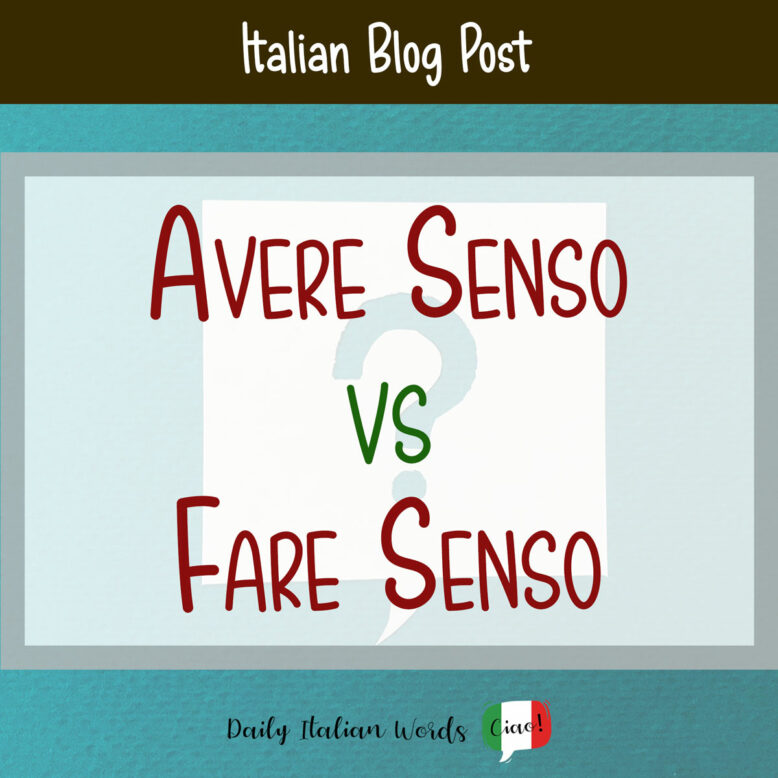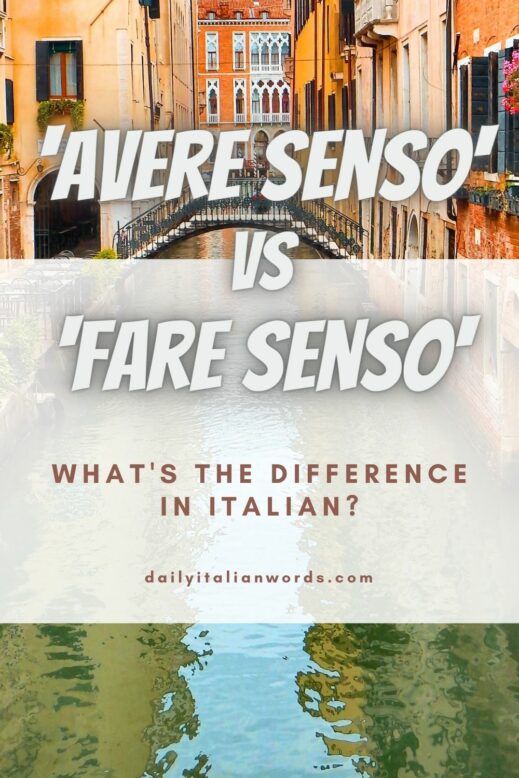In this article, I’d like to explore a very common error that learners of Italian, especially native English speakers, tend to make. It concerns two expressions: avere senso and fare senso. Although they both contain the word senso (sense), the difference in their meaning couldn’t be greater.
Avere senso / Fare senso

In English, when we want to describe something as being logical or comprehensible, we might say that it “makes sense”. Because the literal translation for “make” in Italian is fare (which also means “to do”), it is very common to hear native English speakers mistakenly use the expression fare senso to mean “to make sense”.
The correct way to express this idea in Italian isn’t with the verb fare but with avere (to have). In other words, Italians describe things as “having sense” rather than “making sense”.
Ha senso quello che dici!
What you’re saying makes sense!
Questo discorso non ha senso.
This argument makes no sense.
You’ll often see this expression used with the following adjectives:
- avere molto senso = to make lots of sense
- avere poco senso = to make little sense

Avere senso can also introduce a subordinate clause as in the following examples:
- Non ha senso che venga anche lui. = It doesn’t make sense for him to come.
- Ha senso che la serie TV si chiami The Office. Si svolge proprio in un ufficio! = It makes sense that the TV show is called The Office. It takes place in an office!
So what does fare senso mean, I hear you asking. Fare senso refers to the unpleasant sensation you experience when you see something disgusting or disturbing, something that provokes feelings of discomfort or sickness. People often use this expression to describe insects, spiders, snakes, corpses or blood for example.
I serpenti mi fanno senso!
Snakes creep me out!
Il sangue mi fa senso: non lo posso guardare.
Blood makes me feel queasy: I can’t look at it.
Some other ways of expressing disgust in Italian include:
- È disgustoso/a = It’s disgusting
- Fa venire la nausea = It make one nauseous
- Fa schifo = It’s gross


Heather Broster is a graduate with honours in linguistics from the University of Western Ontario. She is an aspiring polyglot, proficient in English and Italian, as well as Japanese, Welsh, and French to varying degrees of fluency. Originally from Toronto, Heather has resided in various countries, notably Italy for a period of six years. Her primary focus lies in the fields of language acquisition, education, and bilingual instruction.


